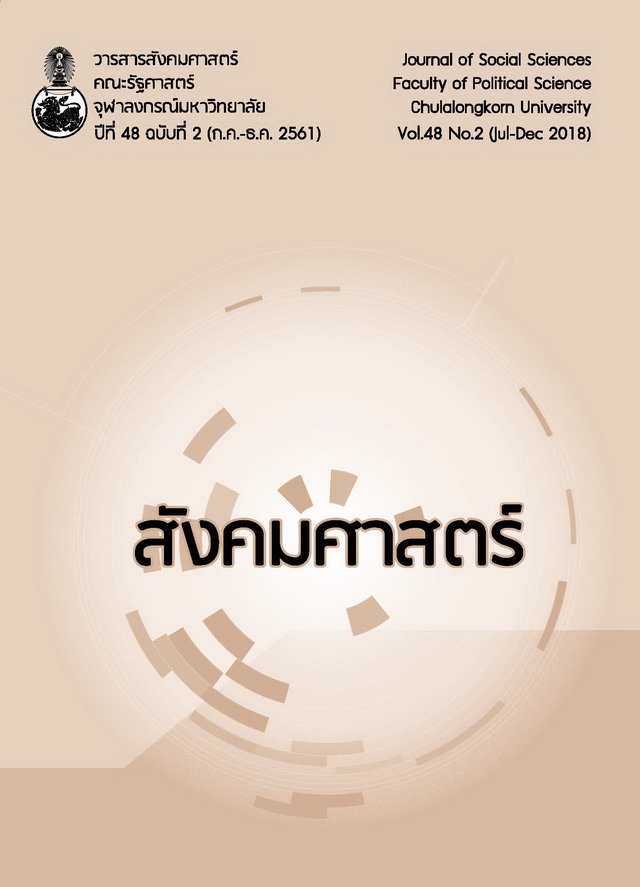Democratic Citizenship Education
DOI:
https://doi.org/10.61462/cujss.v48i2.746Keywords:
political education, citizenship, democracyAbstract
Political education is the part of human’s learning process that seeks to enable searches for intellectual uniqueness, cultural and historical knowledge and political ideology. It also involves the processes of giving information and of developing skills necessary for responding to problems that arise in real life situations and which occur daily. This is to engender wisdom, efficiency and responsibility vis-a-vis the political system. Political education has three components. First is general knowledge, namely, basic information that constitutes the necessary condition for understanding the various dimensions of politics. Second is skills, namely the ability to assemble the information for deep analysis and evaluation of the decision-making process. Third is attitude in the holistic and deep analysis of political information before believing and using in one’s own decision-making. Political education thus has to be consonant with life in society. Educational institutions need to be microcosms of society and be models of goodness in life. They should offer learners experiences appropriate to their levels of maturity and age groups. They should have a democratic atmosphere, so that learners come to know the basic nature of society, able to learn new things and to aim to engender a better society. The institutions should thus encourage cooperation between the educators and the learners and between the learners themselves, so as to move toward the aim of democracy, which is peaceful coexistence.
Downloads
References
Chai-anan Samudavanija, and Jorg M. Frohlich. 1990. Kansueksa Thang Kanmueang: Naeokhit Lae Withikan Chatkan. [Political Education: Concept and Methods of Management]. Bangkok: Institute of Public Policy Studies. (in Thai)
Hahn, Carole L. 1999. “Challenges to Civic Education in the United States.” In Civic Education Across Countries: Twenty-Four National Case Studies from the IEA Civic Education Project, edited by Judith Torney-Purta, John Schwill and Jo-Ann Amadeo. Amsterdam: International Association for the Evaluation of Educational Achievement.
Kittachet Krivart, Anujit Chinnasarn, Chalerm Gerdmoli, Sakun Wongkalasin, Chaiwat Ranglek, and Arpaporn Sookhom. 2016. Kansueksa Rupbaep Kan Hai Kansueksa Thang Kanmueang Phuea Sang Khwam Pen Phonlamueang Civic education) Nai Rabop Prachathippatai An Mi Phramahakasat Song Pen Pramuk. [A Study of the Form of Civic Education for Democratic Government with a Monarch as Head of State]. Bangkok: Civil Political Development Fund, Office of Political Development Council, King Prajadhipok’s Institute. (in Thai)
Manat Suwan, Kangsadal Kanokhong, and Surasing Saengsode. 2016. Rupbaep Kan Hai Kansueksa Thang Kanmueang Phuea Sang Khwam Pen Phonlamueang Nai Rabop Prachathippatai An Mi Phramahakasatri Song Pen Pramuk: Sueksa Korani Changwat Chiang Mai. [A Study of the Form of Civic Education for a Democratic System with a Monarch as Head of State: A Case of Chiang Mai Province]. Bangkok: Civil Political Development Fund, Office of Political Development Council, King Prajadhipok’s Institute. (in Thai)
Matto, Elizabeth C., Alison Rios Millett McCartney, Elizabeth A. Bennion, and Dick Simpson. 2017. Teaching Civic Engagement Across the Disciplines. Washington DC: The American Political Science Association.
Otsu , Kazuko, 2000. “Civic Education in Japan: Values Promotion in the School Curriculum” Asia Pacific Journal of Education 20(1): 53-62.
Parinya Tevanaroumitkul. 2012. Kansueksa Phuea Sang Phonlamueang (Civic Education). [Civic Education]. Bangkok: Nanmeebooks Publications. (in Thai)
Thipphaphon Tantisunthon. 2010. “Pai Du Civic Education Thi Yoeraman.” [Where I Went to See Civic Education in Germany]. Patirup Kanmueang-Krachai Amnat. [Political Reform-Decentralization] Institute of Public Policy Studies, Monthly Newsletter Edison Press Products Ltd. Bangken Bangkok, July: 5-7.
Downloads
Published
How to Cite
Issue
Section
License
Copyright (c) 2018 Faculty of Political Science, Chulalongkorn University

This work is licensed under a Creative Commons Attribution-NonCommercial-NoDerivatives 4.0 International License.
Public Licensing Terms
Copyright and Licensing Policy
The Chulalongkorn University Journal of Social Science publishes all content under the Creative Commons Attribution-NonCommercial-NoDerivatives 4.0 International License (CC BY-NC-ND 4.0).
Copyright
All published articles in the Chulalongkorn University Journal of Social Science are the copyright of the Faculty of Political Science, Chulalongkorn University. Authors transfer all rights to the journal upon acceptance of their manuscript for publication.
CC BY-NC-ND 4.0 License
Under this license:
-
Attribution (BY): Users must give appropriate credit to the authors, the Faculty of Political Science, Chulalongkorn University, and the Chulalongkorn University Journal of Social Science, provide a link to the license, and indicate if changes were made. They may do so in any reasonable manner, but not in any way that suggests the licensor endorses them or their use.
-
NonCommercial (NC): Users may not use the material for commercial purposes. Commercial use requires prior written permission from both the authors and the Faculty of Political Science, Chulalongkorn University.
-
NoDerivatives (ND): If users remix, transform, or build upon the material, they may not distribute the modified material. Adaptations of the work require prior written permission from both the authors and the Faculty of Political Science, Chulalongkorn University.
Open Access Statement
The Chulalongkorn University Journal of Social Science provides immediate open access to its content on the principle that making research freely available to the public supports a greater global exchange of knowledge. Users are allowed to read, download, copy, distribute, print, search, or link to the full texts of the articles without asking prior permission from the publisher or the author, in accordance with the CC BY-NC-ND 4.0 license.
Self-Archiving Policy
Authors may archive the final published version, preprints, or postprints of their articles in institutional repositories or on their personal websites, provided that they acknowledge the original publication in the Chulalongkorn University Journal of Social Science with a complete citation and a link to the journal's website.
Permissions
For any use beyond those covered by the CC BY-NC-ND 4.0 license, please contact:
Editorial Office
Chulalongkorn University Journal of Social Science
Faculty of Political Science, Chulalongkorn University
Email: cusocscij@gmail.com
For more information about the Creative Commons Attribution-NonCommercial-NoDerivatives 4.0 International License, please visit: https://creativecommons.org/licenses/by-nc-nd/4.0/





